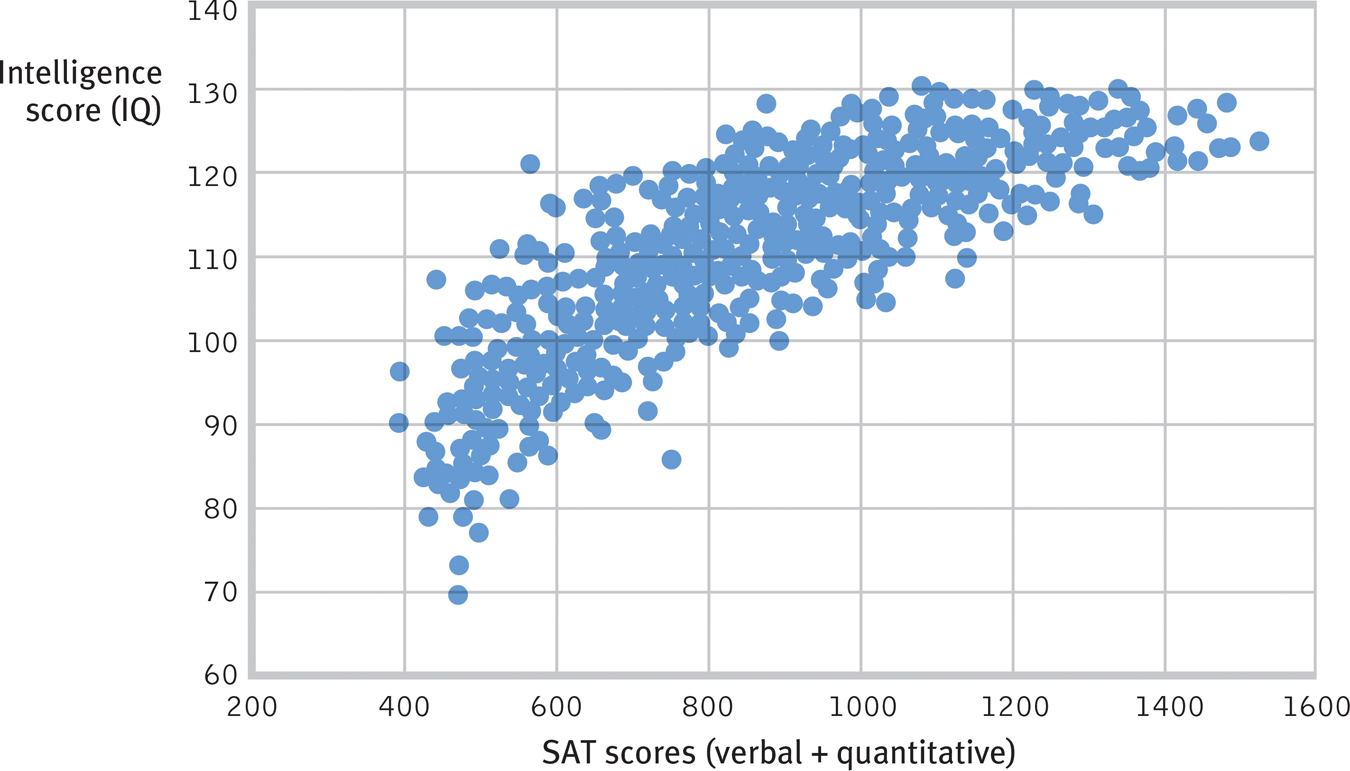Module 30 Introduction
 Assessing Intelligence
Assessing Intelligence
30-
An intelligence test assesses people’s mental abilities and compares them with others, using numerical scores. How do we design such tests, and what makes them credible? Consider why psychologists created tests of mental abilities and how they have used them.
By this point in your life, you’ve faced dozens of ability tests: school tests of basic reading and math skills, course exams, intelligence tests, driver’s license exams. Psychologists classify such tests as either achievement tests, intended to reflect what you have learned, or aptitude tests, intended to predict your ability to learn a new skill. Exams covering what you have learned in this course are achievement tests. A college entrance exam, which seeks to predict your ability to do college work, is an aptitude test—

 Figure 30.1
Figure 30.1Close cousins: Aptitude and intelligence scores A scatterplot shows the close correlation that has existed between intelligence scores and verbal and quantitative SAT scores. (Data from Frey and Detterman, 2004.)